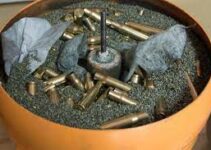Ammunition is made up of a number of different components. One of the most important is the grains. Grains are used to measure the weight of the ammunition.
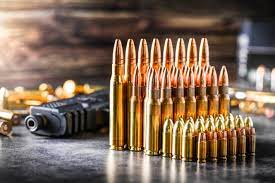
What does grain mean in ammo?
And this article Discoverthedinosaurs.com will help you answer the following questions about what does grain mean in ammo:
- what does a higher grain bullet mean
- what does 158-grain mean
- how to tell how much gunpowder is in a bullet
- ammo grain chart
- difference in bullet grain
- does higher grain mean more recoil
- bullet grain vs recoil
- 9mm ammo grain chart
What is a Grain?
A grain is a unit of weight used to measure the weight of ammunition. It is equivalent to 1/64th of a pound.
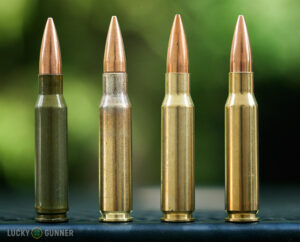
What is a Grain?
What Does a Higher Grain Bullet Mean? A higher grain bullet means that the bullet is made out of thicker metal and therefore has more mass and will cause more recoil.
What Does Grain Mean in Ammo?
Bullet grain is a measure of how many individual grains make up a round of ammunition. The more grains, the more powder and shot is used in each round. This affects the recoil felt by the shooter, as well as the accuracy of their shots.

What Does Grain Mean in Ammo?
How Is Grain Measured?
Grain is measured in terms of weight, and is a key factor in determining the recoil of a firearm. The size and shape of the grains on a bullet also affects its ballistic properties.
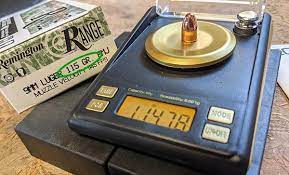
How Is Grain Measured?
What Affects Grain Weight?
Grain weight is affected by a variety of factors, including the type of ammunition, the manufacturing process, and the quality of the grains. The number and size of the individual grains in a round affects its velocity and accuracy.
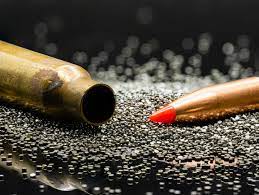
What Affects Grain Weight?
What Is Measured In Grains?
Bullet grain is the size of the individual grains that make up a bullet. The smaller the grain, the less force is needed to propel a bullet through air and into its target. This is why bullets made with smaller grains travel further and cause more damage than those made with larger grains.

What Is Measured In Grains?
Is Higher Grain Ammo Better?
Bullet grain is one of the most important factors when it comes to ammo performance. Higher grain ammo typically produces less recoil and is therefore considered to be more accurate. However, there are a few factors to consider when choosing ammo, such as barrel length and weight, that can override the effects of grain size.

Is Higher Grain Ammo Better?
Does Higher Grain Ammo Have More Powder?
Bullet grain is often used to compare the power of ammunition. A higher grain means more powder and, as a result, more power. This is why it’s important to choose the right ammo for your gun.
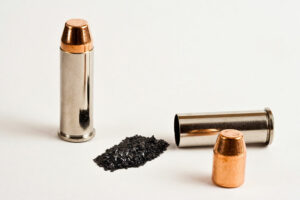
Does Higher Grain Ammo Have More Powder?
Does Higher Grain Ammo Cause More Recoil?
Bullet grain is one of the many factors that can affect recoil. Higher-grain ammunition typically produces more recoil than lower-grain ammunition, though the amount of recoil varies from gun to gun and shooter to shooter. Some shooters find increased recoil to be an enjoyable factor in shooting, while others find it too much and prefer ammo with lower grain levels.
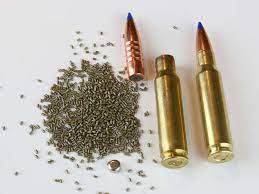
Does Higher Grain Ammo Cause More Recoil?
Bullet grain vs recoil
Bullet grain refers to the size of the individual grains of gunpowder that make up a bullet. The smaller the grain, the more powder is required to fire the bullet. This is why bullets with smaller grains tend to have more recoil.
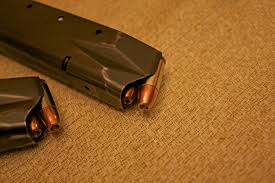
Bullet grain vs recoil
What does 158-grain mean
158-grain bullets are the most common size used in centerfire rifle rounds. They are also used in some pistol rounds. These bullets weigh about 1.58 ounces and have a diameter of .224 inches.
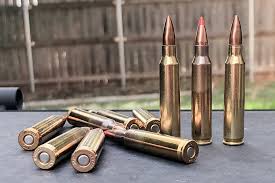
What does 158-grain mean
F.A.Q what does grain mean in ammo:
1. Is higher grain ammo better?
When it comes to ammunition, grain and recoil are two terms that are often confused with one another. Grain is simply a measure of how much powder is in each round of ammunition. Recoil is the force exerted on the shooter when firing a gun, and it can be measured in several ways, including pounds-feet or Newtons. Higher-grain ammo typically results in more recoil because there is more powder inside each round. This can be helpful for shooters who want to feel more of a kick when firing their weapon, but it’s not always necessary. Ultimately, it’s up to the individual shooter to decide what they’re looking for in terms of recoil and grain weight.
2. Is 115 grain or 124 grain better?
There is no definitive answer to this question as it depends on a variety of factors, including the type of gun being used, the ammunition’s intended use, and the shooter’s preferences. That said, most experts tend to recommend using heavier bullets in firearms designed for hunting or self-defense purposes because they tend to deliver more damage. Bullet weight is also important when choosing ammunition for target shooting; smaller rounds typically produce less recoil than larger ones.
3. What grain is best for bullets?
Grain is one of the most important factors in ammunition. It affects the recoil and muzzle velocity of a bullet. The size and shape of a bullet’s grain also affects its aerodynamics, which can have a significant impact on its accuracy.
4. What does 115gr bullet mean?
When referring to ammunition, grain is a unit of measurement that refers to the size of a bullet. A 115-grain bullet is about one-and-a-half times the size of a 45-grain bullet. This larger bullet has more mass and therefore more recoil than a smaller bullet, which is why firearms designed for use with 115-grain ammunition tend to be heavier and have more kick.
5. What is the best 9mm weight for self-defense?
When it comes to firearms, many people are curious about what differentiates the best weight for self-defense. While it is important to consider factors like caliber and barrel length, a key factor to consider is the weight of the firearm.
Bullet weight is particularly important when it comes to self-defense firearms because recoil will be a larger factor. A heavier bullet will cause less recoil and be more manageable for someone who may not have experience shooting a heavier firearm. Additionally, a heavier bullet will travel further before it falls out of the sky, potentially resulting in a hit on target.
Conclusion
Grain is an important component in ammunition. It helps to determine the caliber of the ammunition and can be used to identify the manufacturer.
And this article Discoverthedinosaurs.com will help you answer the following questions about what does grain mean in ammo:
- what does a higher grain bullet mean
- what does 158-grain mean
- how to tell how much gunpowder is in a bullet
- ammo grain chart
- difference in bullet grain
- does higher grain mean more recoil
- bullet grain vs recoil
- 9mm ammo grain chart


